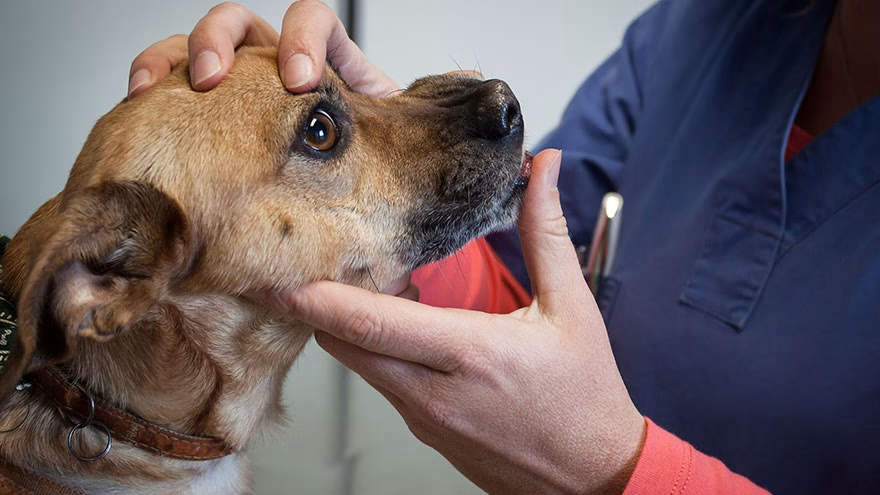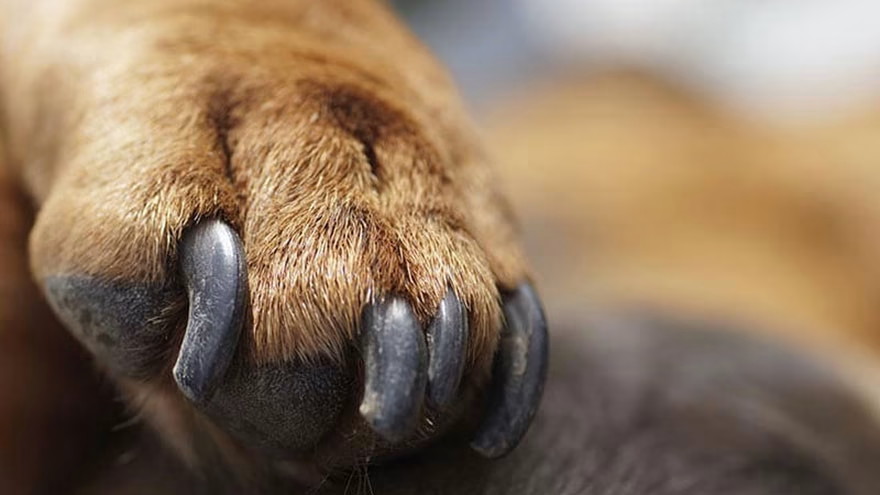Dogs, just as people, have tonsils and can contract tonsillitis and other tonsil health issues. The tonsils are there to ward off infection. Yet, they can get enlarged and infected. Tonsillitis seems to affect smaller dogs more than larger breeds.
Types
According to medicinenet.com, there are several types of illnesses that can affect the tonsils in your dog. Some may be more recognizable than others owing to of their symptoms, but it all cases your dog will show signs of discomfort. Though a dog cannot get strep throat, he can contract the bacteria of his family member and should be treated at the same time. Dogs can also get tonsil stones, tonsillitis and halitosis (extreme bad breath) from an infection.
Causes
Chronic coughing, vomiting, some types of dental disease and a bacterial infection are some of the causes of tonsillitis and severe halitosis. In the back of the throat are little "pockets," where food debris and other bacteria can accumulate. This debris over time will harden and calcify, forming tonsil "stones." If not removed, they will be painful and may become infected. Sometimes a secondary dental disease can cause a bacterial infection in the mouth and throat, affecting the health of the tonsils as well.
Identification
As stated by Dog Health and Pet Place, your dog will be showing signs of discomfort, lethargy, possibly gagging all the time, head shaking, signs of trouble swallowing, constantly pacing, loss of appetite as a result of the pain of eating, plus a possible fever. Some of the signs they show may also seem like they are having head and/or ear troubles when it is their mouth and throat. If you can get to look in the mouth, it is likely you will see the tonsils enlarged, red, swollen and having an odor. Call your veterinarian immediately.
Diagnosis
A thorough exam, including the appearance of your dog's throat, will give your veterinarian a clear picture of a possible problem. According to the Pet Place, diagnostic tests that your vet may perform on your dog include a culture of the throat to check for any bacteria present, a cytology that checks for cancer and cell structures and X-rays.
Treatment
An antibiotic may be prescribed to rid any infections within the mouth and tonsils. If dental disease is present because of tartar buildup, the teeth may first need to be cleaned, followed by further medical treatment. If there are tonsil stones, these also can be removed. Your dog may have to undergo surgery if the tonsillitis is a constant recurring problem. At that time he may have to have a tonsillectomy. This is a rare occurrence because the regimen of antibiotic treatment usually treats the underlying problems, helping your dog return to normal in a short amount of time.
Prevention/solution
Tonsil health of your dog is something rather difficult to prevent but with regular dental and veterinarian care, you can keep him in good shape. With his regular vet visits, proper dental care by you and a thorough, professional yearly dental cleaning, you should be on top of your dog's healthy teeth, gums and tonsils.You Might Also Like :: How to Treat a Beagle’s Ear Infection





0 Comments
No comments yet. Be the first to share your thoughts!
Leave a Comment